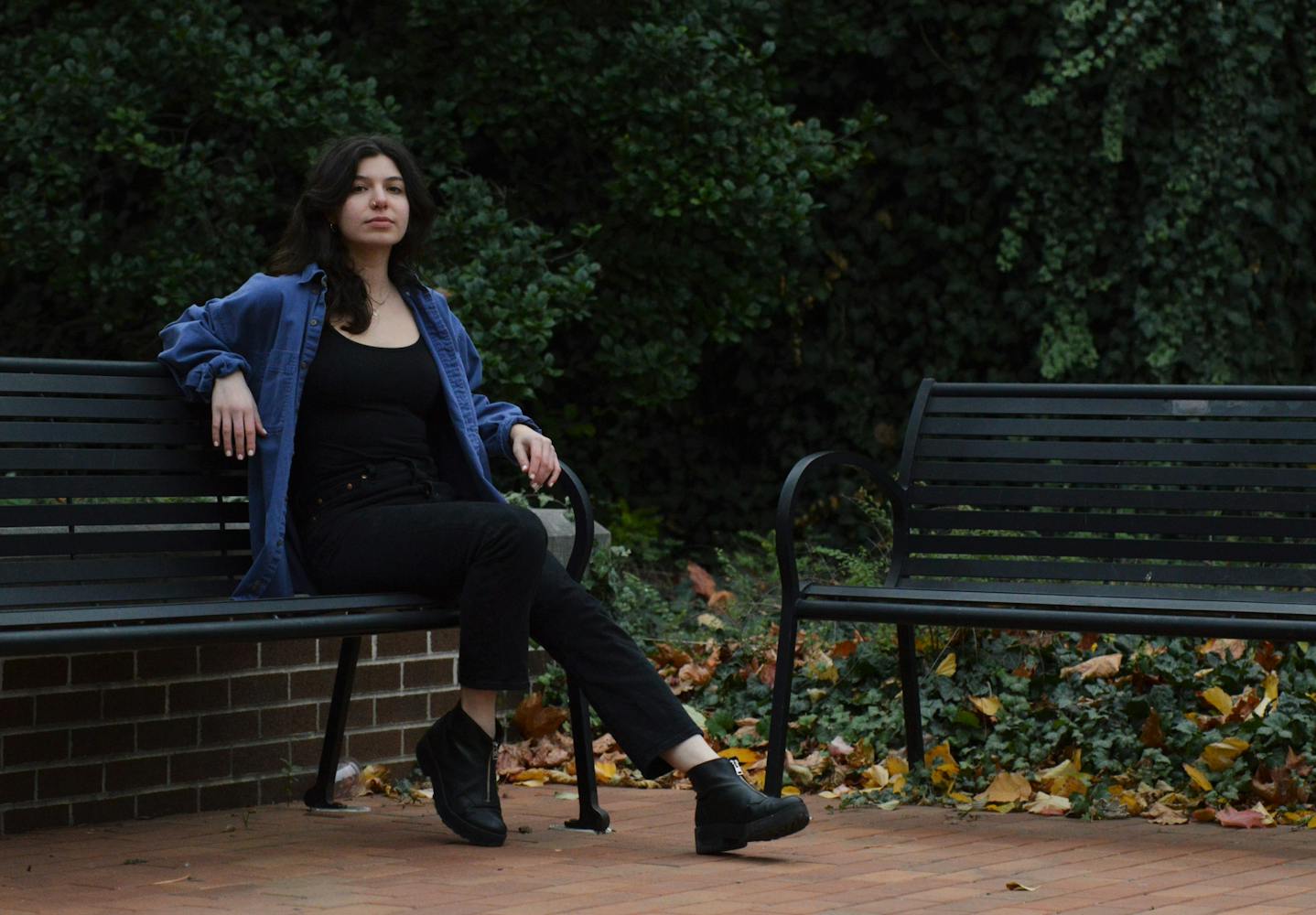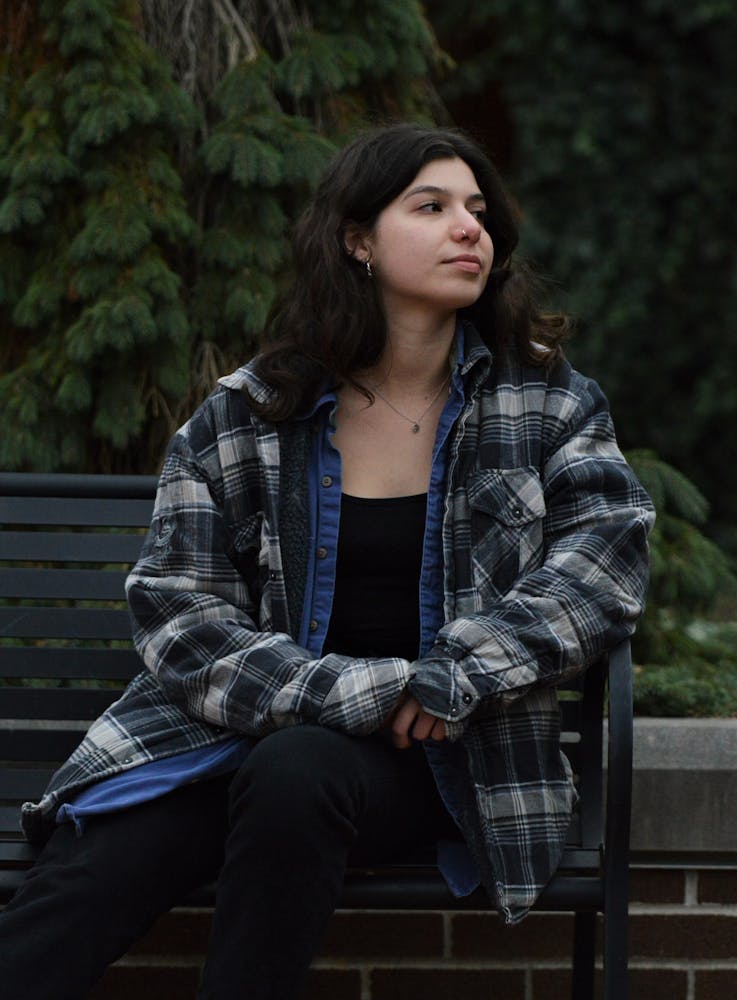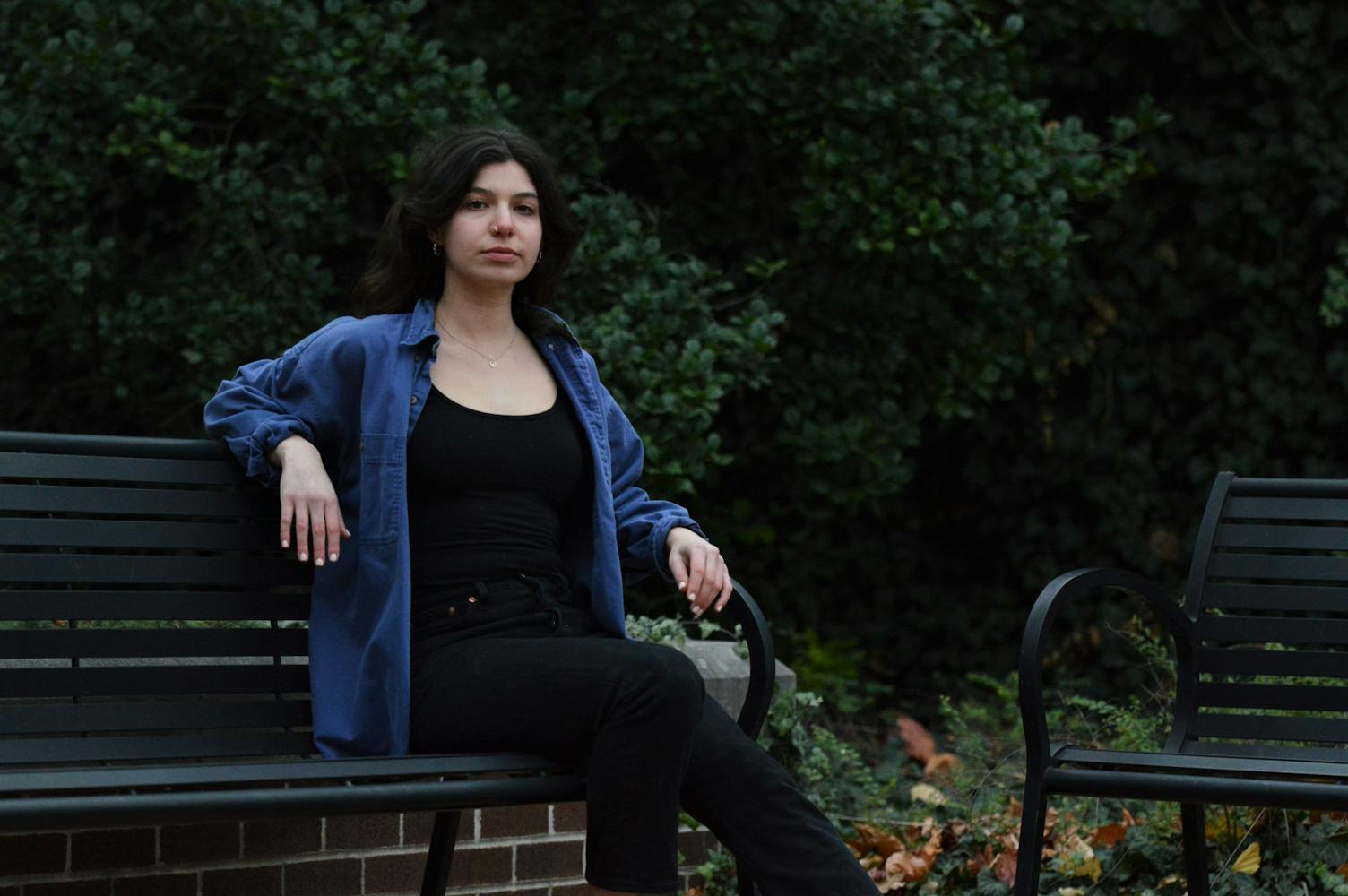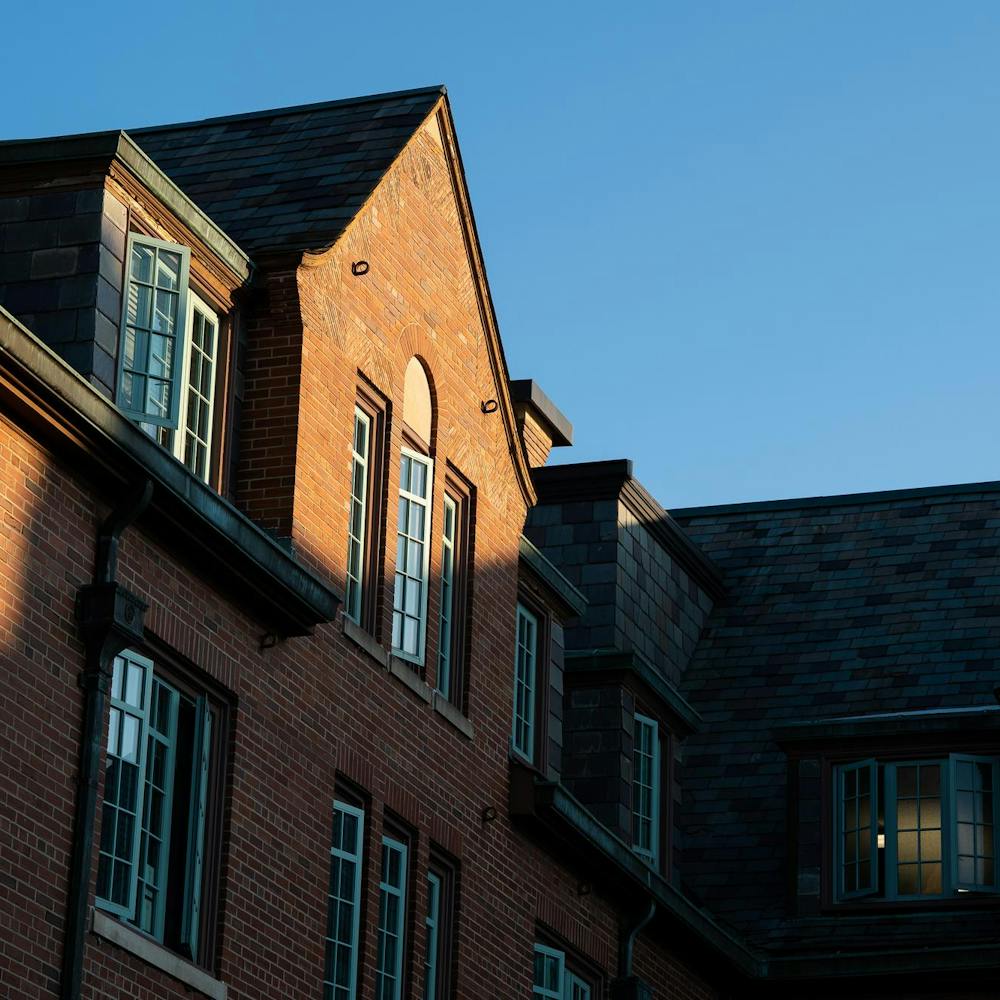At 14 years old, environmental studies and sustainability senior Lauren Sawyer went on a backpacking trip in Washington. As she made her way across the region – which has, in recent years, been hit hard by heatwaves, wildfires and the requisite poor air-quality – she began learning about climate change and its effects.
It was her connection to nature that first inspired her to get involved with climate science.
“For as long as I can remember I've always really loved going outside,” Sawyer said.
But as she grew older, her experiences gave her a more nuanced view of what climate activism can look like. Sawyer grew up in the affluent, predominantly-white St. Joseph. Right next door, just across the Paw Paw River, is the predominantly-Black Benton Harbor, where the public water system has consistently tested above federal and state limits for lead contamination since 2018.
Sawyer saw how state and national media gave little coverage to the crisis in Benton Harbor. She was shocked as it took more than three years and the passage of President Biden’s Infrastructure Investment and Jobs Act to get the federal funds necessary into the city.
“The lead levels are higher than they were in Flint,” Sawyer said. “And that would not probably be an issue if Benton Harbor was a white city, frankly.”
With this crisis in mind, Sawyer found herself becoming an activist who views climate issues through an intersectional lens. She believes that more of the conversation about climate change needs to center on climate justice, with an understanding that a warming Earth will disproportionately hurt disadvantaged communities.
Aside from her research in the Department of Environmental Studies and Sustainability, Sawyer has interned at Michigan's chapter of the climate activism organization Sierra Cluband completed the MSU-Detroit Partnership for Food, Learning and Innovation.
At MSU, she’s a member of the Student Sustainability Leadership Council, Honors College, Bailey Hall Government, Committee on Undergraduate Education and MSU chapter of the Sierra Club.
She’s most proud of a research project in which she studied how climate change and natural disasters can spur and affect migration.
Though she’s been assisted by many older climate experts in her work and education, Sawyer is certain that things are different for Gen-Z: the generation will be around for the worst of it.
“(In older generations) there’s a narrative of, ‘well, I'm not going to be here, so it's not my problem,’” Sawyer said. “I think a lot of climate stress and anxiety is created in students, youth and Gen Z. They don't feel like they can do anything except recycle except to use a reusable straw. And really, that can be frustrating.”
Sawyer said her generation is empowered by social media, connected to the issues and each other in ways other generations couldn’t be.
“Because of social media, a lot of youth are more aware of the climate issues that are happening across the world,” Sawyer said, “I mean, if you take me for example, I learned that prop three in Michigan was passed through Instagram.”
This spring, Sawyer will graduate from MSU. Looking back on her time, she said that while she was thankful for the connections to policymakers and experienced faculty, she felt MSU as an organization could do better in terms of sustainability.
Sawyer said she was especially frustrated by the board’s response to Sunrise MSU’s divestment campaign, which urged the university to fully divest from fossil fuels, as they promised to do in 2018.
Recalling her time as an ASMSU representative, Sawyer sees the divestment debacle as one of many examples of MSU’s administration ignoring student voices, a concern echoed by Sunrise organizers.
“I think like any business – and MSU is a business – there is room for improvement, but I haven't lost my faith in the fact that MSU is a great school,” Sawyer said. “It has a lot of resources for students to learn more about sustainability to take action themselves.”
Like many in her graduating class, Sawyer feels much of her Spartan experience was “gutted” by the COVID-19 pandemic, which has left her especially sad to be moving on. However, she was optimistic about where her work will take her next.
“I think we all have a part to play," she said. "I think we all have a responsibility to take care of the earth and to undo wrongdoings.”
Support student media!
Please consider donating to The State News and help fund the future of journalism.
Discussion
Share and discuss “Environmental student, researcher and activist has hope for a more sustainable MSU future ” on social media.











